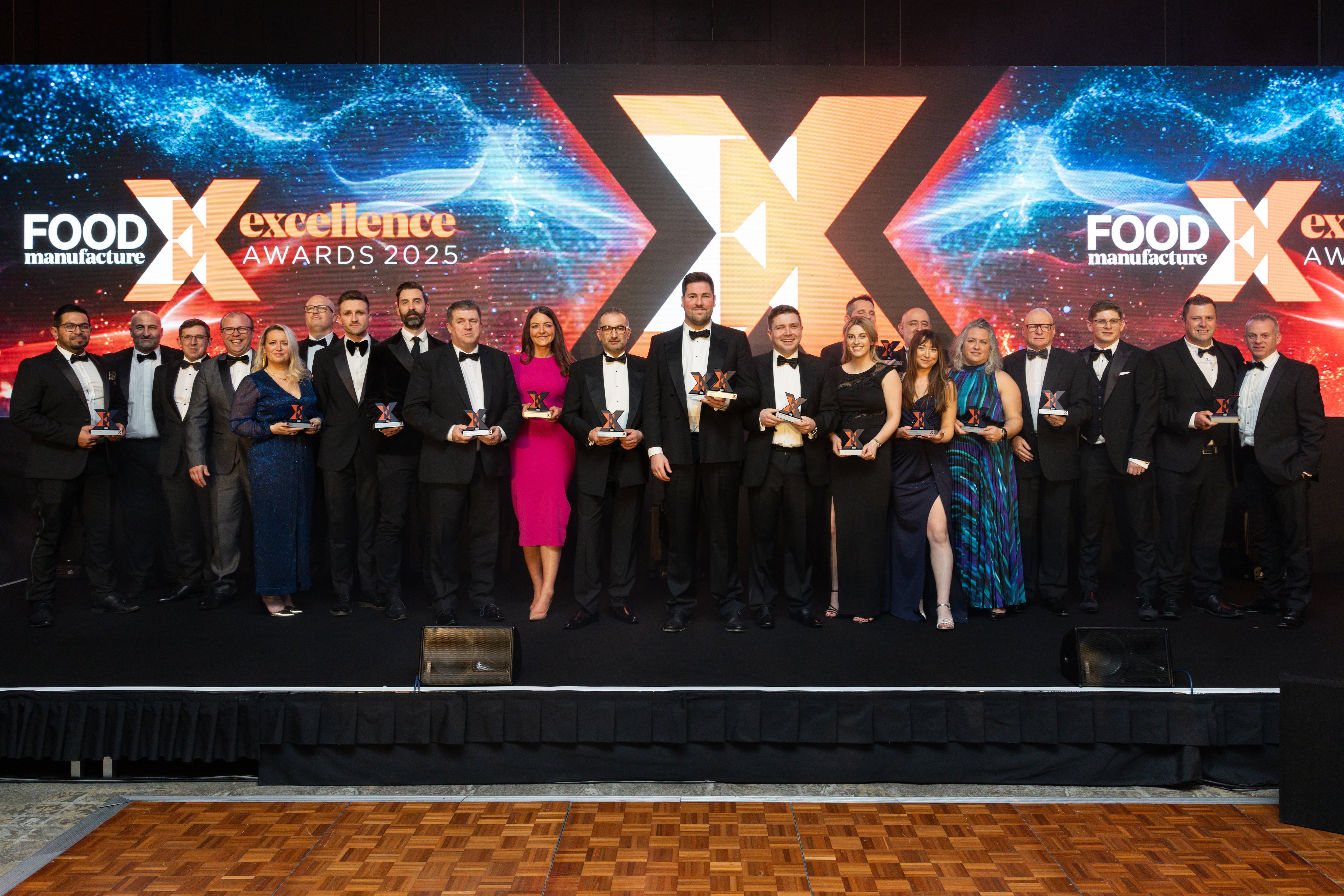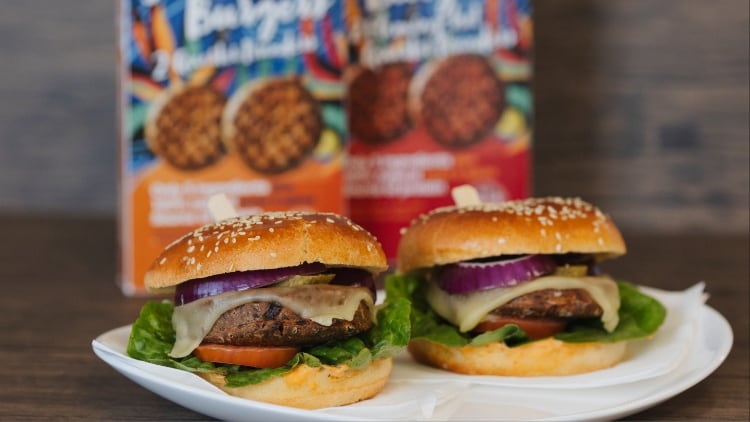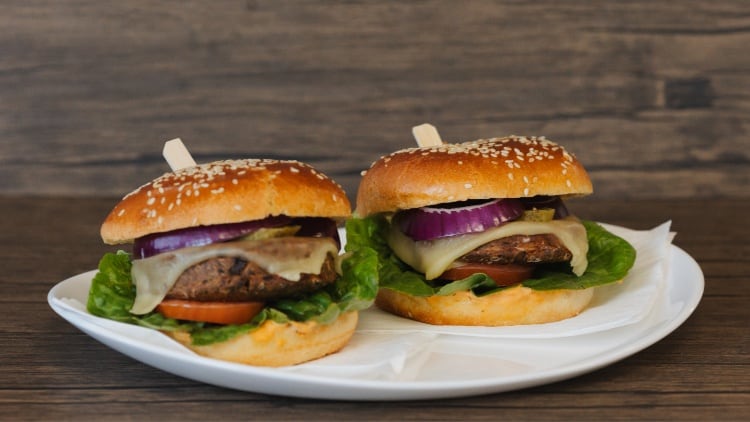Myco was born from a simple observation of the mushroom industry – too much of the mushrooms we eat was going to waste.
“Particularly with exotic mushrooms such as the oysters, only 50% the cap is used for food purposes and the rest was going to landfill,” said John Shepherd, chairman and non-executive at Myco. “It was a case of repurposing that into a food product which could make a difference to the environment, making a difference to people’s health at large and make some money.”
With these goals in mind, Myco set about developing a mushroom product that could be used as a substitute for meat, but they soon ran into a snag.
In the spirit of sustainability, the manufacturer tried to keep its supply chain within the UK. However, by buying the roots and stems that were usually overlooked by retailers, Myco had accidentally created a market for the product that hadn’t existed before. In turn, prices started to rise and the company was forced to look outside of the country for suppliers.
Cheaper on the continent
“Unfortunately, we had to look onto the continent because that’s where you could get them,” Shepherd explained. “It became apparent economically it was cheaper to buy from Europe than it was to buy in the UK. So, we had to start doing that.
“But again, we thought with the emissions and the environmental concerns that we had and were trying to address, we would rather grow our own where we have metres rather than miles in the food chain.
“So that’s where we are. I mean, we still have to buy in begrudgingly, but we’re doing our best to fill the gap and to increase as we go forward.”
By creating a vertical farm, Myco could supply its own mushrooms whenever they wanted and however they wanted them. To achieve this, the manufacturer has turned to AI systems.
“What the AI does, it’s using a series of intelligent solutions,” added chief executive David Wood. “First, it looks at getting a uniform harvest. Second, automating the harvest, but then looking at the growing conditions and the atmospherics during the incubation period of the mushrooms.
“We monitor temperature, the humidity, oxygen and CO2, and we have varying light scopes that we can put into the into the different rooms to try and enhance growth in a certain way.”
All of this tech is in service of one simple output – volume. Where a retail customer will be after a bigger head on the mushroom – and this is what traditional farmers have tailored their techniques to achieve – it doesn’t matter to Myco how aesthetically pleasing the mushrooms look. All that matters is they can grow more of them.
The AI programme draws on millions of data points – 6 million captured in just four months – and then Myco asks the programme to change the conditions in the farm to give a specific output.
“If we want the mushrooms to grow quickly, we can tell the programme we would like them to grow quick,” Wood continued. “If we want them to grow bulky and weighty, we can.
“It’s not an immediate solution and with technology like AI, it is about getting the right data, putting it in the right programme, asking the right questions, getting it to run the right programmes and learn from the right set of information at the start to make sure it then gradually improves the way it maintains those environments.”
Challenging public perception
One of the biggest challenges Myco faced lied less in its ability to scale and manufacture product, but actually from a poor public perception of vegetarianism and veganism.
“The pubic had a picture of veganism and vegetarianism which was very aggressive and sort of in your face and it turned people off from even looking into what veganism and plant-based is all about,” Shepherd explained.
“So, it was really a case of overcoming that hurdle to get people to engage. Now a strange thing might be to say is when Beyond Burger came across [from the US], they did a lot of the education which helped us to go out there – people already had the beginning of a knowledge of plant-based and veganism and what it could involve and what it could be.”
But from the way that Wood describes it, Myco has had no problem with drumming up support for its products. Since the beginning of 2024, Myco has gone from a business with no turnover to now serving multinational customers and its products on sale with 72 plant-based retailers – a number that was still growing.
Speaking of international partners, Myco is in talks with customers in the United Arab Emirates and Saudi Arabia who are very interested in the technology behind the manufacturer’s success.
“Our vertical farming and mobile vertical farming solutions are highly interesting to them, because if they can grow protein using rainwater in the middle of the dessert, that’s game changing for them,” said Wood. “They don’t need to rely on others to supply food.
“Right throughout this business, we’ve come on massively from 14 months ago sat scratching our heads thinking we’ve got the basis of something great needed to put the pieces together to make a business that’s going to serve a great purpose in the future.”
Myco’s future
But where does the future lie for Myco? Shepherd wants to see the manufacturer to become a large player in the greater food and beverage industry, not just within plant-based.
“Yes, we have a very good plant-based brand and product, and we’ll stand by that all day long – we’ve done blind taste tests with a lot of our bigger competitors and well-known names,” said Shepherd.
“We’ve done all of that, but really, we want to talk to more than that 3%. We want to speak to 100% and if we can get our product, which blends and binds so well with meat, the changes we can make to public health and to the environment are vast, and if we’re at the forefront of that and others chase after us to do that, that’s all to the good.”




